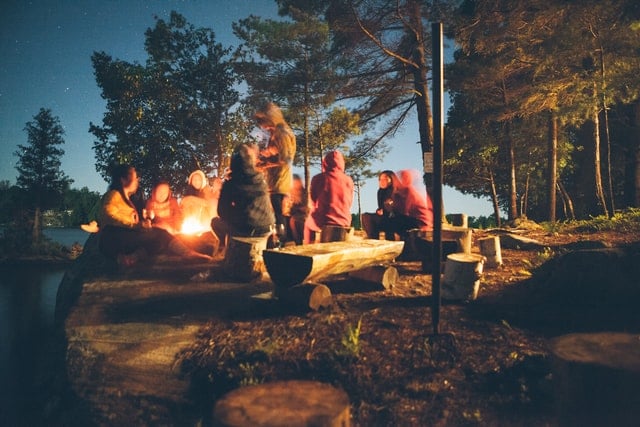
Show up, and open up. It may sound simplistic, but that’s basically the recipe at Circles.
The guided peer groups we run help you explore the challenges you face in life, both personally and professionally, by tapping into what amounts to a universal experience.
“As long as there have been people on this earth, they’ve sat in a circle,” says Jonathan Hefter, the chief guide at Circles. “We’re simply doing it with some great technology and an agenda and a really clear mission.”
Jonathan has spent more than 20 years in business training and learning, drawing on a right-brain, left-brain mix of operations experience and creative peer facilitation. He rattles off the tenets of Circles with an obvious passion, exuding a belief that he’s helping the world become a better place one video conference call at a time.
But he makes it clear that a circle is much more than a conference call. It’s a community, and it’s his job to make sure the people in that community feel safe enough to open up.
Jonathan, who worked for Circles founder Dan Hoffman years ago, has plenty of experience getting people to open up. He runs wilderness experiences and men’s retreats in the Berkshire Mountains of western Massachusetts, where men from various backgrounds can sit in a circle and talk about their deepest troubles. Jonathan is now successfully implementing this approach to Circles with one key difference, the technology.
The human element is still at the core of circles meetings though. The key, as Jonathan puts it, is to create a safe space where people can feel like they’re able to share. Just don’t call it group therapy.
“It’s not therapy,” he says. “It’s therapeutic.”
The secret to a great circle is having deeper conversations than most people are used to having at work. People need to feel they are in a psychological space where they can be vulnerable, and vulnerability is crucial to people feeling like they can go deep.
So, how does he do it? One way is by establishing norms, like ensuring each participant starts the circle being willing to open up. Another is ensuring that they cut right to the chase. In the first meeting, for instance, participants don’t go around the circle spouting off their resumes.
“I’d much rather hear about the last time when a deep, meaningful conversation happened in your life,” Jonathan says. “Or, better yet, why are you interested in Circles? Tell me what you want to get out of this.”
The potential number of answers is infinite, and the circle organically follows the discussion where it needs to go, while the guide, and the meeting platform’s timer feature, makes sure everyone gets equal air time.
Granted, Jonathan might not be your guide. But he knows how to pick them, and he has come up with a training program to make sure every guide can help every member get the most out of each circle.
The guides come from a variety of backgrounds — former coaches, a school administrator, a theater teacher — but the standout trait they all share is fundamental for Circles; knowing how to hold space. What that means is, Jonathan can train them on how to keep the circle on track and enforce the norms that have been established. But they all know how to speak from the heart and they all know how to tell a story. They keyword here is empathy. Importantly, they also know how to encourage others to do the same.
Because at its heart, Circles is about how the shared experiences of others can help make your life better. That means sharing stories, not advice. Studies show that sharing your challenge and how you worked through it will be more valuable than any traditional advice you can give someone.
“The question is how do we bring this into corporate America,” Jonathan says. “We have to tap into what all humans want. You want to belong, you want to know you’re not alone. You want safe spaces to get what you need so you don’t go home and pull your hair out.”
For more on how to not go home and yank at your hair, check out how Circles can get you together with your own personal advisory board.
“We all have something to learn, and everyone can teach you something,” Jonathan says. “Your life can be an endless journey of learning. And it’s supposed to be fun.”